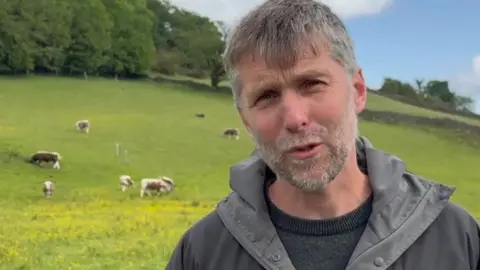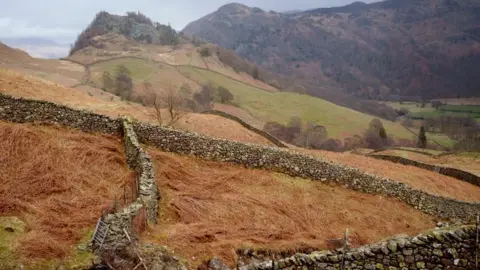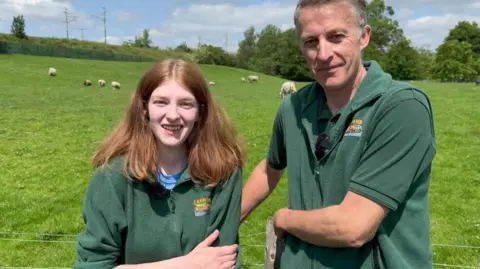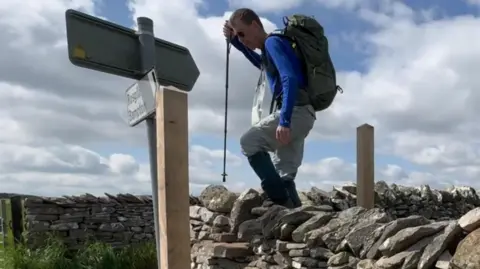Plea to drop 'abused' Lake District heritage title
 BBC
BBCA conservationist is campaigning to get the Lake District's world heritage status revoked, claiming too many tourists are damaging the land.
Ecologist Lee Schofield, who owns farmland near Haweswater, has written to Unesco saying the area is being "abused" by increased tourism, second-home ownership and unsustainable sheep farming.
The area was given the status by the United Nations agency in 2017, with its beauty, thriving farming businesses and inspiration for artists and writers being praised.
Tim Farron, Liberal Democrat MP for Westmorland and Lonsdale, said losing the status would be a "hammer blow" to tourism and farming. Unesco has been approached for comment.
The Lake District was the 31st place in the UK and overseas territories to be put on the heritage list, joining the likes of the Grand Canyon, the Taj Mahal and Machu Picchu.
About 18 million people visit the area each year, spending a total of £1.2bn and providing about 18,000 jobs.
It is home to England's largest natural lake - Windermere - and highest mountain - Scafell Pike.
 Getty
GettyMr Schofield said: "Some areas need a rest, maybe for quite a long period of time to allow the habitat to recover again and then it will be able to support more livestock again in the future.
"The designation is also really damaging in terms of tourism, it's a much bigger contributor to the rural economy than farming is but it reaches a point when it has a really damaging impact on wildlife and the communities that live in these places."
He also said there was a "massive problem" with second-home ownership driving up property prices, meaning locals could not afford to buy homes.
Julia Aglionby, professor of protected areas from the University of Cumbria, disputed the claim there was "over-tourism".
She said it was important it was managed properly and that was the role of the "hard-working" Lake District National Park Authority.

Hannah Wadsworth, who helps run Lakeland Maze Farm Park, near Kendal, said the status had boosted her business.
She said: "The World Heritage Status has been really helpful for us bringing people into the farm park.
"If it was to go it would be really unfortunate and [we] would really struggle to maintain our livelihood."
Other UK Unesco sites include Stonehenge, Durham Castle and Cathedral, and the city of Bath.

Farron said he was against the campaign and that it was a "misguided and poorly judged attack" on hill farmers.
He said: "Stripping the Lake District of the status and removing sheep from the fells would be hammer blow for Cumbria's tourism and farming sectors - both of which are utterly vital to our economy.
"It would also be damaging to our heritage and diversity."
Mr Schofield added: "I'm one of many people who have raised these concerns - this is not a personal campaign, I'm certainly not alone in this."
